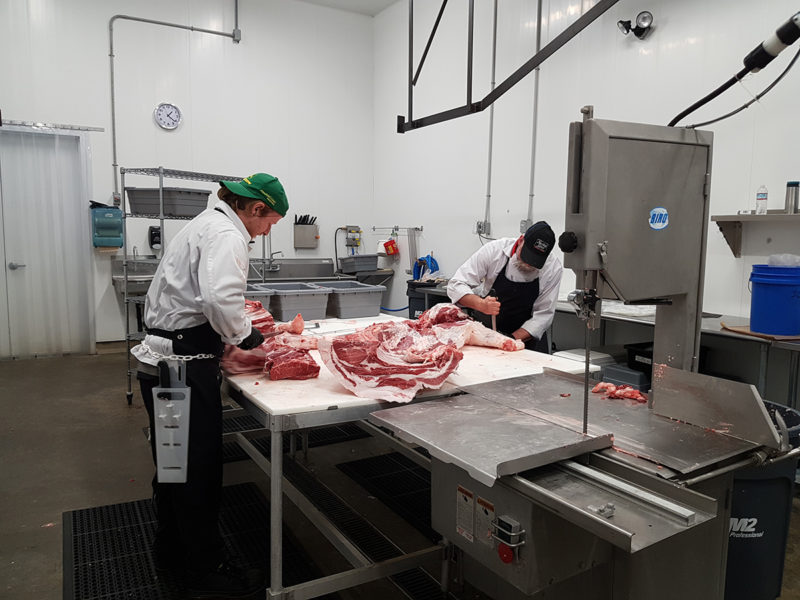VICTORIA – The BC Ministry of Agriculture is taking over meat inspection in the province on December 1, consolidating oversight of the sector.
“Effective December 1, 2020, all slaughter activity licensed under the Meat Inspection Regulation for class A, B, D, and E meat slaughter licenses will now be regulated under the Ministry of Agriculture,” the province announced August 19.
“It’s about time,” says Nova Woodbury, executive director of the BC Association of Abattoirs. “It’s good news. We have been calling for more accountability and more oversight of D and E licences for a long time now. Having licensing and oversight of all slaughter facilities in BC being provided by the Ministry of Agriculture will be a benefit to all those involved in meat processing.”
A and B slaughter facilities are currently under the agriculture ministry. A provincial meat inspector observes the processing of every animal.
D and E plants, which are only allowed in 13 designated regions of the province, have been overseen by the regional health authorities and have no minimum inspection requirements other than a site inspection to obtain their licence.
Meat from D and E facilities can only be sold within the regional district where it was processed, and must carry a “Not Government Inspected. For sale only in the Regional District of ____” label.
The change also pleases Julia Smith of the Small Scale Meat Processors Association.
“This is something pretty much everybody involved in the meat industry agreed needed to happen,” she says.
The report of the province’s Select Standing Committee on Agriculture, Fish and Food, published in September 2018, called for the agriculture ministry to look for ways, “to expand current meat inspection and enforcement services.” A second recommendation required “the Ministry of Agriculture (or their designate) to increase resources to enable engagement with Class D and E licensed facilities to ensure increased inspections at those facilities, including slaughter.”
The latest government announcement lacked details, promising an intentions paper this fall. But it did recognize a number of benefits to moving all authority under the agriculture ministry, including new economic opportunities, strengthening the resiliency of the BC food system, streamlining administration of licenses, improving consistency in the administration of D and E licences throughout the province and increasing the frequency of inspections to ensure food safety and animal welfare are maintained.
“More inspections is a key,” says Woodbury, noting that some regional health authorities fail to inspect D and E plants even once a year.
She would also like to see the inspections review actual slaughter practices to ensure operators are slaughtering animals correctly.
The BC Association of Abattoirs looks forward to hearing details of the changes that will occur, particularly those related to “streamlining licensing to reduce administrative burdens.”
“We are interested to know if some of these changes will apply to the inspected Class A and B abattoirs to encourage more of them to open throughout the province,” she says.
Smith is optimistic that the changes will create opportunities.
“We are hoping that bringing everybody under the Ministry of Agriculture will remove the regional restrictions on sale and broaden the market opportunities for small processors,” she says. “Meat that is safe to eat in the Thompson Nicola region should be safe to eat in Squamish.”
But the current capacity situation across the industry worries Smith.
“We are disappointed with the pace at which this is happening and there is a real urgency now,” she says, noting that the province began discussion of D and E facilities in spring 2018. “All levels of processing in the province are running flat out.”
Farmers bought and raised more animals this year because of demand during the COVID-19 pandemic while others kept animals back to finish for themselves, she explains.
“There is a tremendous number of animals that are market-ready this fall,” she says. “I am begging for spring processing dates for my own animals already.”
The glut of animals will end up being processed some way, says Smith.
“We really hope that it will be in a facility with the proper oversight,” she says.
Regional health authorities retain responsibility for new Class D licences until December 1, but the agriculture ministry does not expect the transition in oversight to have any impact on licences in process.


 Field days feeling the pinch of social distancing rules
Field days feeling the pinch of social distancing rules